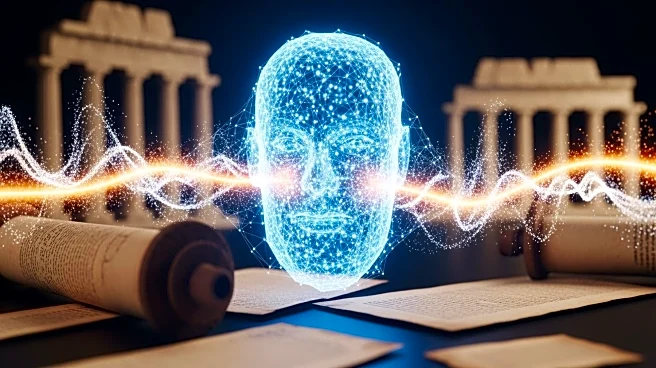What's Happening?
Researchers are using particle accelerators and artificial intelligence to read ancient papyri from Herculaneum, a town buried by the eruption of Vesuvius in AD 79. The papyri, turned to charcoal by the eruption,
are part of a library owned by Julius Caesar's father-in-law, containing works by the philosopher Philodemus. The scrolls are too fragile to be opened by hand, but AI and high-resolution scans are beginning to reveal their contents, potentially uncovering lost works of Greek philosophy and early Christian texts.
Why It's Important?
The ability to read the Herculaneum papyri represents a significant advancement in archaeological research, offering insights into ancient Roman culture and philosophy. This breakthrough could lead to the discovery of previously unknown texts, enriching our understanding of historical intellectual traditions. The use of AI in this context demonstrates its potential to revolutionize the study of ancient artifacts, providing a new method for accessing information that was previously inaccessible.
What's Next?
Researchers plan to continue scanning the remaining scrolls, with the hope of uncovering more texts from the library. The success of this project may encourage further exploration of other ancient collections using similar techniques. Additionally, the findings could prompt renewed interest in excavating unexplored parts of Herculaneum, potentially leading to more discoveries.
Beyond the Headlines
The use of AI and particle accelerators in archaeology raises questions about the preservation of cultural heritage and the ethical implications of using technology to access ancient texts. This development may lead to discussions on the balance between technological innovation and the conservation of historical artifacts.









